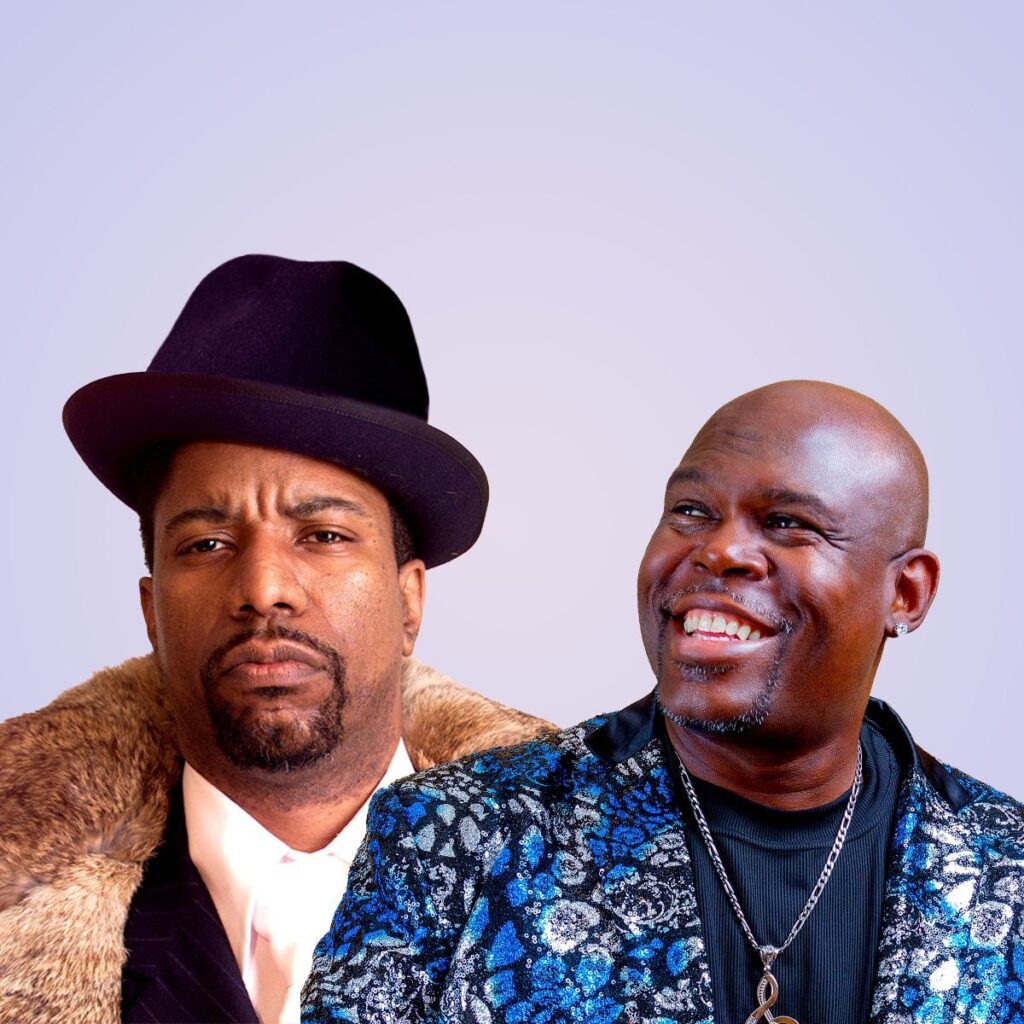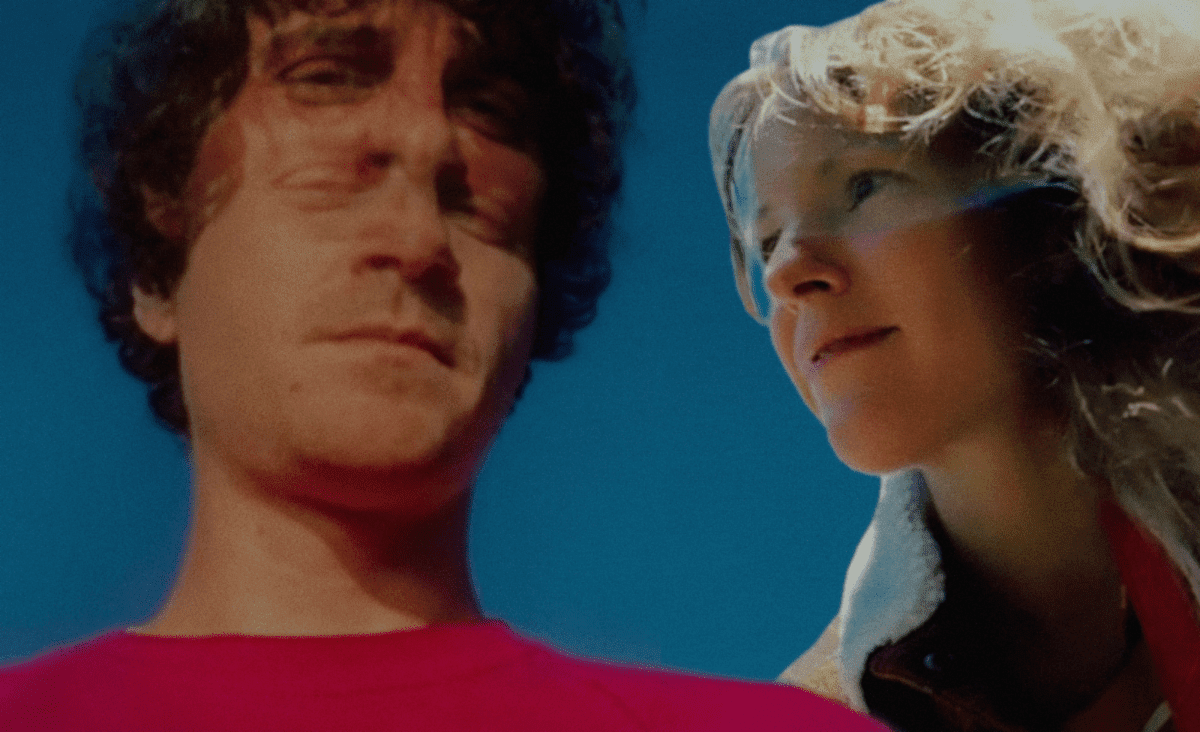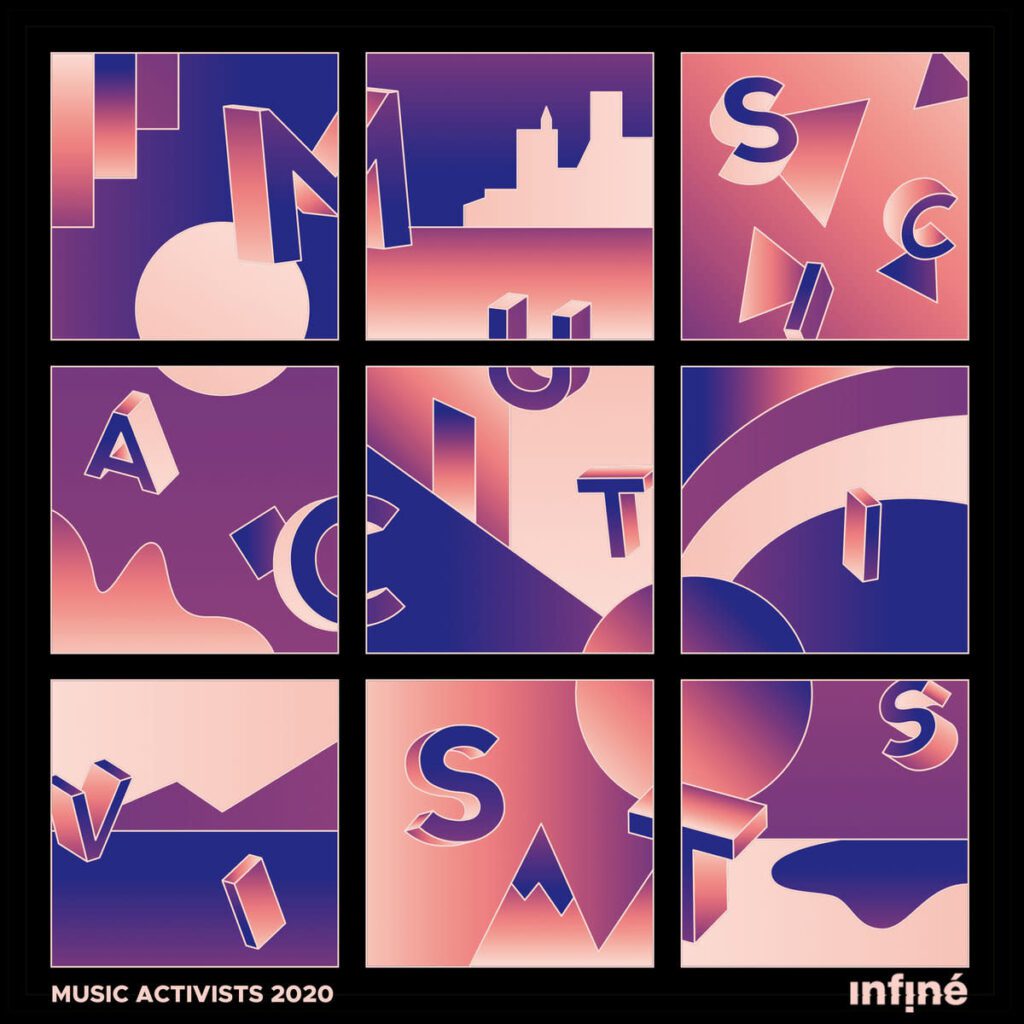Like a groove, you can't quite fake a smile. You can see it in the subtler details, like the lines around the eyes or the sparkle therein. Or the warm fuzzy feeling you get when a knowing grin peeks out from behind a mirthy scowl. Call it charm or any number of five dollar synonyms, there's no denying when a wholehearted smile lands and brightens your day.
That feeling is exactly the feeling I get when I listen to Folamour's music. The first song I remember listening to by him was his "Ya Just Need 2 Believe in Yaself," which, upon re-listening to it for this piece still makes me cry. Like so much of his music, it's got an undeniable streak of soul that goes straight to the source of you and elevates your spirits. Folamour's first full length album, Umami, was a wonderful collection of sample based productions that was a joy to listen to. It really showed off his penchant for taking the listener on bliss filled journeys, in this case within the parameters of skillfully chopped up loops and riffs.
Truly, though, you must listen to Folamour's second full length album from beginning to end to build an appreciation for the prowess and talent behind the moniker. Vision is a word that's thrown around quite often, but do me a favor and listen to Ordinary Drugs masterpiece and tell me it doesn't have it. The album starts like a warm ocean wave, gaining momentum in subtle ways, but by "Don't Make Me Leave You Again Girl," it's impossible not to feel the bliss cresting over your head and sweeping you away with the tide. It continues in this manner, never getting too sure of itself, but never losing the confidence to tell you exactly what it means. It was this album that got me from fanboy to true devotee and I'm not looking back.
Now it is very tough to follow up an album like that, which is why we've not heard hide nor hair from him since the album released. But one of the positive consequences of all the DJ tours getting cancelled is that all your favorite producers are stuck indoors working on new material. This thought leads us nicely to today's piece, which is being released alongside Folamour's new single, "I Miss Having Someone To Talk To." In keeping with the trajectory established in his most recent album, Folamour partnered with the phenomenal vocalist Liv East and wrote a delightful single that definitely brought some brightness to my dreary day. I hope it brightens yours too, so have a look at the official DIY video below and keep going to read more about the man himself.
Magnetic Magazine: How did you get started DJing and producing?
Folamour: First I started playing in rock bands when I was a teenager. When I moved to the city I had to stop playing instruments because it was too noisy to have neighbors. You know how it is. But one of my best friends was a DJ and one day he was like, "Man you have a good record collection, you love music, you should try DJing." So it started like that. I started playing in Lyon a lot. Doing all night longs in small pubs and events like that. Then after I was DJing for a bit, I got stuck in bed for two months because of a disease I caught. With all that time in bed, I decided to learn Ableton.
MM: When you started working with Ableton, were you taking your existing musician skills and applying them through the computer, or was it a completely new skill set that you were building?
Folamour: Actually, a bit both because I wasn't able to record any instruments at first, it's a skill I had to learn. But I always felt my skills in drums were making things easier for me when I was having to chop samples and create rhythmics. Even with the melodic aspect, too, I had a clear idea of what I wanted to do every time. But the skill gap for Ableton is huge! It’s basically it's own instrument, you know? You have to learn it like you’d learn guitar or anything else.
MM: What do your parents think of your career choice?
Folamour: They've always been quite supportive with me pursuing what I want. But at the same time, I've never felt that they really understood my songs. Sometimes they say, "Oh, yes, this one is nice," but I never felt like they really understand it. Which is weird because there are a lot of songs whose meanings are based on our teenage years or our childhood, which is likely something we experienced with our parents. So it’s always odd when they don’t understand it because to some degree, you feel like you’re talking about them, you know?
MM: Would you say you’re a heartfelt person?
Folamour: Definitely.
MM: Do you find that’s an advantage when you’re touring internationally like you do?
Folamour: I think it’s a bit of the opposite, you know? First, I should say, it’s better for me overall because I don’t ever have to change myself in any way. I follow my heart so I can totally be myself in every situation. I can do whatever I want and people are quite supportive of it, so that’s really nice. At the same time, I see myself as a properly nice person, really polite and caring, and sometimes this can be hard when you meet people who are not in the same vibe as you. Sometimes it’s a bit of a shock. When I first started touring internationally I was in a lot of situations where I was confronted by people who were not the same vibe as I was. I’d come home feeling a bit sad, “Oh I don’t know what happened, I don’t know why it was like that.” But I think it has made me better as a person; it gave me confidence in myself.
MM: Do you find you like to challenge yourself when you're DJing in front of people?
Folamour: Yes, definitely, and I think getting better and better allows you to take more risks like that. When I first started I always felt I had to play house-y versions of songs I loved, because I was more sure that people were going to react to those versions and I knew to mix them. But with time, and me being more confident on stage, I’ve been able to play the original songs that I love. I can play stuff now that I could never imagine playing a few years ago.
MM: What’s one song that you haven’t been able to play out yet?
Folamour: "Sinnerman" from Nina Simone, with the running piano going. I’ve always dreamed of playing that song. Or, “A Change is Gonna Come” by Sam Cooke. I’d love to play that song as the ending of a set, you know? It would be amazing. At the same time, these songs are so special to me that I don’t want to play them just to play them. I know it’s weird, but I don’t want to waste a song that is beautiful like that. I would feel so terrible playing it and noticing that I didn’t bring it in the right way.

Photo Credit: Ben Droege
MM: What part of yourself are you currently working on?
Folamour: These days I’m working on figuring out what I’m able to do and what I’m not able to do. I’ve always dreamed of doing things but have stopped myself because I felt I wasn’t ready for it. Now that I have the time, I’m just going for it. For instance, I’ve always dreamed about singing my own songs. I’m creating my next album right now and I was like, fuck it, let’s just try singing! Maybe it’ll make something good. I’m trying just to try it, and if I fail, it’s not that important. Right now, I have time to fail 100 times to succeed the 101st.
MM: Do you find you have to be comfortable in order to push past your comfort zone?
Folamour: I think I’m the most creative when I’m not really comfortable; when I’m a bit on edge and I’ve got some kind of extreme emotions that I want to pass on. But to try new stuff and push past my boundaries, I think I need to be balanced. I need to feel confident and have a clear view of myself in order to try something new.
MM: What daily rituals allow for you to connect with yourself?
Folamour: There are two things. The first is that when I wake up in the morning I try to forget everything and start the new day. I don’t know quite how to say it but I just stand up, open my windows, and move around listening to how my body feels. The second thing that I try to do every day is take in a single moment and file it away so I can remember it later. Like we remember quotes, for instance, I try to stick it in my mind. It makes it easier for me to avoid feeling like I had a day that meant nothing if I have one moment I can think back to later.
MM: Was there a certain point where you felt you were skilled enough to express your emotions?
Folamour: Definitely. For my first album, Umami, I wasn’t able to write proper songs to lyrics or write vocal melodies and stuff like that so I had to express myself in other ways. I had to be sneaky, in a way, by finding samples that expressed something I couldn’t put into words. It wasn’t really exactly the meaning I wanted to reach, you know? But it was the best I could do at the time. But ever since Ordinary Drugs, I feel the songs I write express my feelings more accurately since I'm writing it all myself.

Photo Credit: Ben Droege
MM: What emotions are the hardest for you to handle?
Folamour: Happiness is always a bit weird for me. It’s weird to say because in my day to day life, I’m always about joy and positivity. But to be honest, when I make music, talking about being happy is always the hardest. I never know how to talk about it without feeling like I’m faking something. Even when I’m talking about a moment that I was 100% happy, I struggle to express it in a simple way.
MM: Does the music that comes out of you reflect how you feel right now?
Folamour: Actually, most of the time I write my music from memories of something I felt some time ago. I try to write a song about it, about that meaning, about that emotion, about that moment. Most of the time it’s not based on the present. Sometimes it’s based off of a book, and how it made me feel. I love stories that are a mix between truth and hard reality. Where an author is able to take something really difficult and turn it into something beautiful.








